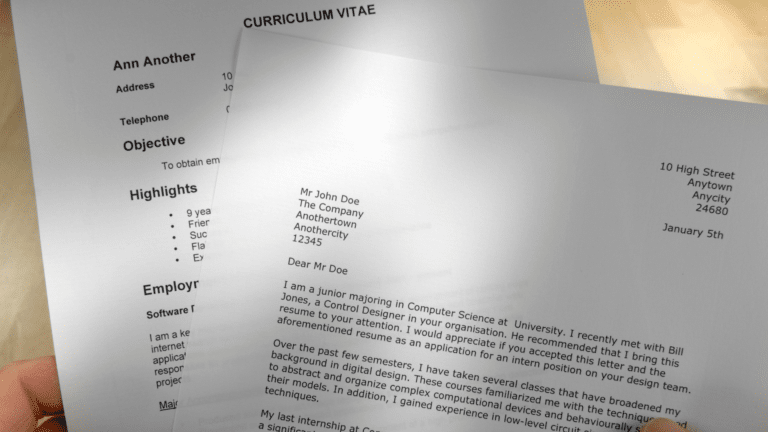Making a good first impression is essential when interacting with potential business partners. For example, the elevator pitch is one of the best and most interesting ways to talk about yourself or your business.
The elevator pitch lets you briefly explain who you are and what your business does when you get a chance to talk to someone shortly. Preparing your speech beforehand is a good idea since the pitch can be quite short.
If you want to learn how to conduct an elevator speech and when you should use it, we’ve got you covered! This detailed guide will give you all the details you need and prepare you for your pitch in no time.
So, let’s jump straight into it!
Key Takeaways
- Elevator pitches serve as short, pre-prepared statements that you can use to introduce yourself and what you do.
- The term got its name from the length of an elevator ride. Meaning that your elevator pitch should not be longer than 60 seconds.
- Whether you work for a small or a well-established business, an elevator pitch is handy to persuade recruiters and businessmen that your idea or service is worth investing in.
What is an Elevator Pitch
An elevator pitch is a short speech most suitable for showcasing your ideas for a specific product or service. The term’s name comes from the belief that this speech should not be longer than an elevator ride. This means that an elevator pitch should be around 30 to 60 seconds long.
Besides that, you can also use the elevator pitch to introduce yourself and what you do when you attend career fairs. These events are the best opportunity to sell your product or service and convince businessmen that your idea is unique. This way, you’ll also get a chance to create connections with stakeholders.
How to Create an Elevator Pitch
An elevator pitch should be engaging, unique, and attention-grabbing. To fulfill all of these criteria, follow these steps:
#1. Describe Yourself
First things first, it’s essential that the investors or businessmen know who you are. This can become tricky, as whenever someone asks you to describe yourself, you suddenly forget everything about yourself.
Therefore, it’s a good idea to prepare beforehand. To do so, you can make a list of ways you can describe yourself. The best way to do this is to tailor the list to the business you want to address.
If, for example, you will be attending a networking event for finances, it is best to avoid mentioning any hobbies like running or hiking or even what you do with your family in your free time. It’s best to focus on mentioning your activities, services, and any additional events you’ve participated in.
#2. Describe What You Do
The next step is to describe what you do. This is the most important part of the elevator pitch, as you will have the chance to make a good impression while showcasing information that the person you’re talking to needs to remember.
However, this can sometimes get tricky because you must choose what information you want to give out since you only have around 30 seconds to speak. Here, it’s important to prioritize information that is tailored to the other person’s business.
To describe what you do, ask yourself the following:
- What skills can I prioritize for my career goals?
- What is the best way to connect with the person that will understand my career goals?
- How can my career goals benefit this person?
#3. Ask a Question
Last but not least, to properly end the elevator pitch, it’s important to ask questions. This question can be anything from asking for additional advice or information about the business from the other person.
You can also ask about keeping up with one another so you can discuss things in more detail later on. Moreover, you can end the elevator pitch with a statement of what you want to achieve. Combine this with the question aspect, and you can get something like:
“I’m currently in town because I noticed your company was offering a job position. I was interested in the offer and wanted to ask whether you are offering any job positions and how I could apply?”
Top Tips for Acing Your Elevator Pitch
Depending on what your pitch is about, your approach might be different. However, some tips and tricks you can use to ace your next elevator pitch are:
#1. Be as Brief as Possible
Since an elevator speech is short, you should be as brief as possible. Don’t mention every single detail about your experiences and goals. All you have to do is briefly explain who you are and what your business does.
#2. Speak Clearly
The main thing to remember is to avoid using slang during your elevator pitch. Some recruiters, investors, or businessmen will not be familiar with the jargon and will therefore find your speech off-putting. That’s why you should speak clearly and concisely.
#3. Be Persuasive
The main attribute that an elevator pitch should have is that it should be convincing. Although the speech is short, it should be precise and convincing enough to make the listener interested in your idea, project, or business.
#4. Share Your Skills
Recruiters and investors will want to know what your skills are and what qualifications you have that can benefit them. That’s why the main focus should be to sell yourself (while remaining humble) and showcase what you can contribute to their business.
#5. Practice as Much as You Can
As it is known, practice makes perfect. It is always important to practice; this way, you will sound more natural and you will not forget important details of your speech. Besides that, it’s also important to make sure that your speech does not sound robotic, even though you’ve prepared it beforehand.
#6. Be Flexible and Positive
When delivering your elevator pitch, it’s best to be perceived as flexible, as you’re generally not being interviewed for a specific role. Besides that, it’s important not to mention things that you don’t like doing. Although it’s okay if you don’t prefer certain work requirements, it’s important to make a good impression about the things you’d rather do instead.
#7. Mention Your Goals
Next, mention what your career goals are. Explain whether you have a new and unique service or product idea that could engage recruiters or investors. You don’t have to go into details, but make sure you explain what you’re looking for and how you can help the listener’s business.
#8. Know Your Audience
It’s important to know for whom you’re pitching the speech. Knowing your audience means that you need to tailor your elevator pitch to them. If you’re delivering the speech at a financial career event, you can also include finance jargon. Besides that, keep your pitch simple and match it to the recruiters’ interests.
#9. Make Eye Contact and Aim for High Energy
It’s a good idea to practice eye contact so you don’t overdo or underdo it. Proper eye contact will make you seem professional. However, it’s also best to avoid staring so that you don’t make the other person feel uncomfortable. Instead, find a middle ground between the two.
#10. Have a Business Card Ready
Lastly, it’s important to maintain a connection and stay in contact with the investors and recruiters. That way, you can give out more details about your business and services in a planned meeting.
All you need to do is simply keep a business card with you. Once you are finished with your elevator pitch, you can offer the card to let the listener know that you’d like to continue the conversation.
What Not to Do During Your Elevator Pitch
Now that we’ve tackled what to do during your elevator pitch, let’s look at some things that you should avoid:
- Don’t ramble. Although the pitch is supposed to be around 30 seconds long, you shouldn’t try to rush and mention too many details at once. Even though you have a short time to talk about yourself, it’s important to keep the pitch simple and only mention important details, like briefly describing yourself and what you do.
- Don’t frown. It’s important to stay positive not only with your answer but with your face as well. Try to keep a natural smile and confident look on your face and avoid frowning since it will leave an impression that you don’t want to be part of the conversation.
- Don’t limit yourself to one elevator pitch. If you’re interested in working with two specific fields, you may need to work on more than one elevator pitch. In this case, knowing what information should go in which speech is super important. If you want to work with a marketing agency, it’s best to showcase how well-organized you are with projects. On the other hand, it’s best to keep a more casual tone if you are attending social events.
Final Thoughts
And that’s a wrap!
Preparing for chances where you get to express yourself and your business is always important, and checking what you should include in your elevator pitch goes hand in hand with the preparation process.
All you have to do is remember that your elevator pitch should be engaging and contain enough information to get an investor or recruiter hooked on getting to know you more.
We hope that this guide has helped you get all the answers you were searching for, and we wish you good luck on your next career event!











